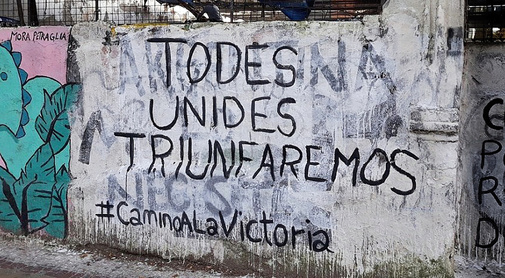- Bald hurries up.The RAE studies the Constitution
- Inclusive language.Privileges, elites and language
The plenary session of the Royal Spanish Academy yesterday studied for the second time the report on the verbal reform of the Spanish Constitution commissioned by Vice President Carmen Calvo and prepared by its members Ignacio Bosque, Paz Battaner, Pedro Álvarez de Miranda and Inés Fernández Ordóñez.
491 unmarked masculine words ("Spaniards"; citizens ";" deputies "...) out of a total of 18,473 terms that make up the Constitution are pending splitting (" Spanish and Spanish ", etc.). The Government is studying rewriting the Magna Carta according to non-sexist language criteria and the Academy acts as a consultant. According to Paz Battaner a Papel, the discussion will continue in January. It is assumed that your report will say that there is no linguistic reason for the change. If the Government believes there is a political motive, make a political decision.
On the other side of the Spanish-speaking world, in America, the changes go faster: the use of a new unmarked morpheme -e (as in " les amigues ") has become visible in the revolts of Chile, in the posters and in the painted. Before, that morpheme spread through Argentina.
«The use of -e began to be visible in Buenos Aires, in 2018, in the discussion of the abortion law », explains Daniela Lauria, linguist and researcher at the Conicet (the Argentine equivalent of the CSIC). «High school girls who were waiting for the Senate decision [negative] began to use it spontaneously. Before, similar solutions were already circulating, but only the -e was successful ».
At this point, six Argentine universities have publicly stated that they accept academic texts written with that -e neutral (Rosario's announced it yesterday) and President Alberto Fernández's campaign has used the morpheme. «In the academic public discourse it is extended. The SAR says that it does not consider it necessary because the unmarked male already includes women ... Well. That can affect sexism, the non-visibility of the feminine. But the -e also includes trans people or who do not want to identify themselves in masculine or feminine ... This is a political act that has nothing to do with grammar. My position is that you can change to the language, that all We do it every day. And to take the floor is to make politics, take sides ».
«It is clearly a political act, not a linguistic one. As a linguistic act, it can only be considered a joke, ”replies his colleague Pedro Álvarez de Miranda, author of Gender and Language (Turner, 2018). «In no language has a gender morpheme been invented out of nothing. It is as absurd as a group to decide which dog means, henceforth, table ».
«A language is a set of social conventions accepted by a mass. If the promoters of the -e get a consensus among the 560 million speakers of Spanish, I will retract all that has been said, but I doubt that the man who paints children on a wall in Chile, at home says children ».
There is a paradox: supporters of change argue that the language belongs to the speakers and that if they want to use the -e , the "normative elites" (the SAR) do not have to stop them. But, his detractors say that, in reality, they are the academic elite who wants to impose a revolution from above that, in reality, nobody demands.
María Martín Barranco, author of the essay Neither please nor for favor (Books of the Waterfall), opens another crack: «I have spent my whole life claiming a form that will represent me. And the Spanish grammar gives it to me: friends. The -e is legitimate for many people but it does not represent me. And I see bad uses of that -e »
According to the criteria of The Trust Project
Know more- Argentina
- Chile
- culture
- RAE
- literature
Music 'A rapist on your way', the feminist song of The Thesis that crosses America
Literature Carmen Calvo urges the SAR to prepare a report on the use of inclusive language in the Constitution
Interior Anti-CDR plan before the Ibero-American summit

